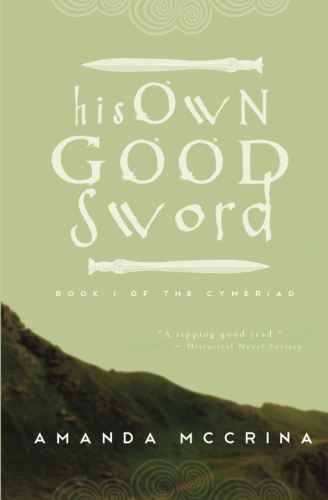Apologies, first, that it’s been all quiet on the blogging front lately. In my defense-hey guys apparently there’s a really big solar storm today!
Next, Wolf Blood, by N. M. Browne. This, ladies and gents, is the first digital book I’ve ever purchased. No, I still haven’t broken down and bought a Kindle, but I did download the Kindle reading app. I have to say I was rather underwhelmed by the reading experience, but that’s not particularly the fault of the book, and therefore not worth dwelling on. The digital vs. traditional debate has been carried on extensively elsewhere. There’s not really much point in my bringing it up again, except to say that traditionally bound books will probably always be my reading preference.
So, the book itself. I gave it two out of five stars on Goodreads, which translates to “It was OK.” Because…it was OK. At less than three hundred pages, it’s a quick, easy read. I finished it in a couple hours. Obviously, then, it held my attention. The lean nature of the plot is really the only reason I can think of for Wolf Blood being classified as young adult. (Then again, what really counts as “young adult”? That, too, is a debate for another day.)
The main storyline runs as follows: Trista, a Brigante seeress, escapes enslavement by a rival tribe only to cross paths with two soldiers of Legio IX. (I think it’s an unwritten rule that every historical story set in Roman Britain must deal with the 9th Legion at some point.) Through a blindingly quick succession of events, Trista and one of these soldiers, half-Roman/half-Brit Morcant, find themselves thrown together in a race for their lives. Trista quickly finds out that Morcant isn’t only torn between two human heritages; he’s also a shapeshifter, spending his days in human form and his nights as a wolf. And his wolfish side is growing stronger.
A subplot has to do with the historical British rebel Caractacus, who fought against the Romans only to be betrayed into their hands by his sister Cartamandua. Trista and Morcant eventually wind up with Caractacus’ forces, battling the Roman invaders. After a battle scene that’s meant to be climactic, Caractacus abruptly exits the stage, making me wonder whether the author intends a sequel to deal with the loose threads (namely, Caractacus’ infant son).
Wolf Blood certainly has an intriguing premise. I’m a sucker for Roman tales, so I was excited to find this novel, and expected it to be a refreshing take on the current werewolf craze in YA literature. Which it is; don’t get me wrong. But it falls a little flat in execution. Technically, it’s quite well-written. I know that first-person present-tense narratives have been gaining popularity-mostly thanks to The Hunger Games, I suppose. But this is the first time I’ve ever really encountered it, and I have to say it totally works here. It lends a kind of brutal immediacy to the story. The prose is clean and sharp (though I agree with another reviewer who commented that the first half of the book seems better written than the latter half). As I mentioned above, the action is fast-paced and attention-grabbing.
But, on the whole, Wolf Blood was a bit of a letdown. None of the characters feel particularly well-developed. We don’t get much about Trista’s past, or Morcant’s, though the hints we’re given are intriguing. Most of the minor characters, in particular the Romans, are so one-dimensional that they become indistinguishable. Wolf Blood is short, and in this case I feel it might be a little too short.
In particular, I wish the author had developed Morcant more. The narrative is split between Trista’s POV and Morcant’s, but overall more time is devoted to Trista-probably because recounting Morcant’s exploits as a wolf would get a little tedious (“And then I killed another rabbit!”). Morcant as a human character is left woefully underdeveloped, in my opinion. I think it’s brilliant how his half-blood human heritage serves as a kind of parallel for his werewolf nature, but the author doesn’t spend much time developing this idea. She doesn’t fully explore the implications of his divided human loyalties. Morcant betrays Rome with no remorse at all, almost without thought, even though we’re told he’s his father’s heir and a citizen. I wish more time had been spent on the idea of Morcant as half-blood-in-more-ways-than-one.
And while the book is a quick read overall, there were still stretches where I found myself skimming paragraphs. A lot of time is spent with characters just wandering in the woods, hopping from one place to the next without any real motivation or any connecting narrative thread-the old fantasy-novel Journey Syndrome, I guess. It highlights what I see as the major weakness of the book: there isn’t any real focus. At first the primary conflict seems to be between Trista and rival tribespeople; then, for reasons that aren’t entirely clear to me, the Romans become the major antagonists, and Trista and Morcant are fighting with Caractacus. But this plotline is dropped abruptly, too, and Caractacus fades quietly to the background, without any real resolution. A forgivable fault if a sequel is forthcoming, but, as it stands, I finished Wolf Blood wondering what the point had been.
This has turned into a really long-winded review. I’ll sum it up this way: Wolf Blood is an admirably creative take on a werewolf tale, but it’s let down by skimpy character development and a rushed, incoherent plot.

 I'm a student, amateur historian, coffee connoisseur, movie buff, hockey fan, cat lady, and all-around nerd. I'm currently pursuing a degree in history and political science at the University of West Georgia. In my spare time, I write historical fiction and fantasy. My debut YA historical fantasy novel His Own Good Sword was released on 7 May 2013.
I'm a student, amateur historian, coffee connoisseur, movie buff, hockey fan, cat lady, and all-around nerd. I'm currently pursuing a degree in history and political science at the University of West Georgia. In my spare time, I write historical fiction and fantasy. My debut YA historical fantasy novel His Own Good Sword was released on 7 May 2013.


